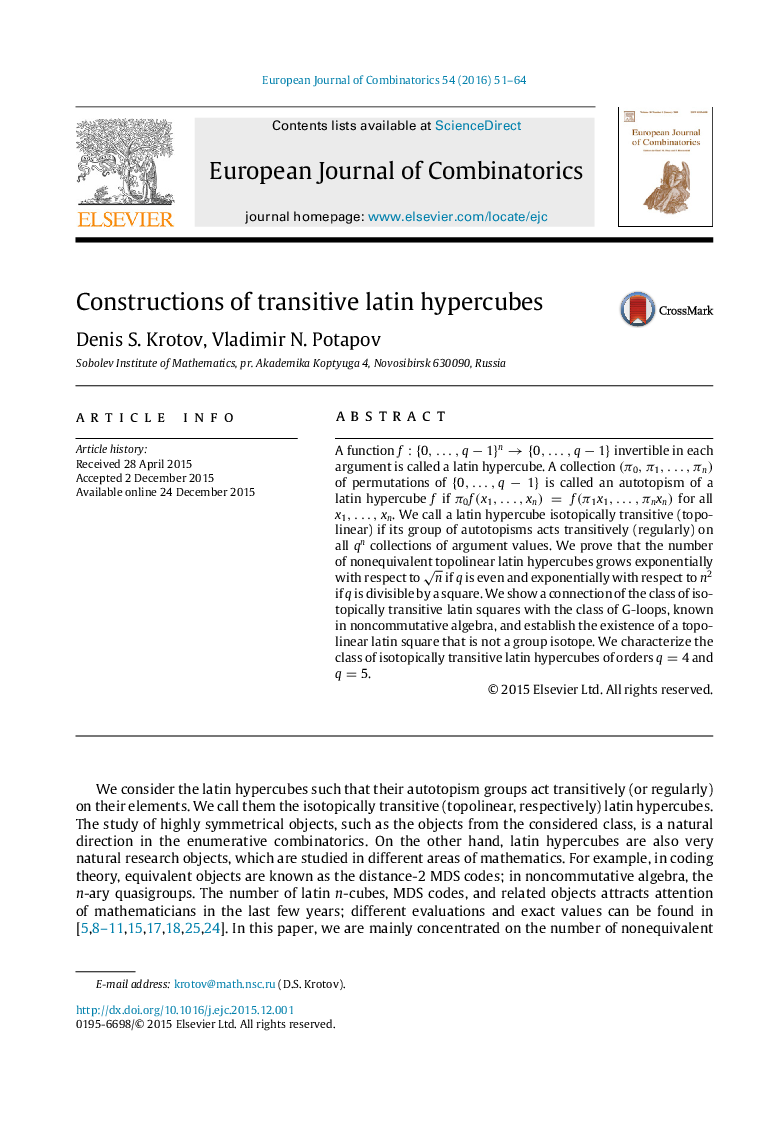| Article ID | Journal | Published Year | Pages | File Type |
|---|---|---|---|---|
| 4653296 | European Journal of Combinatorics | 2016 | 14 Pages |
A function f:{0,…,q−1}n→{0,…,q−1}f:{0,…,q−1}n→{0,…,q−1} invertible in each argument is called a latin hypercube. A collection (π0,π1,…,πn)(π0,π1,…,πn) of permutations of {0,…,q−1}{0,…,q−1} is called an autotopism of a latin hypercube ff if π0f(x1,…,xn)=f(π1x1,…,πnxn)π0f(x1,…,xn)=f(π1x1,…,πnxn) for all x1,…,xnx1,…,xn. We call a latin hypercube isotopically transitive (topolinear) if its group of autotopisms acts transitively (regularly) on all qnqn collections of argument values. We prove that the number of nonequivalent topolinear latin hypercubes grows exponentially with respect to n if qq is even and exponentially with respect to n2n2 if qq is divisible by a square. We show a connection of the class of isotopically transitive latin squares with the class of G-loops, known in noncommutative algebra, and establish the existence of a topolinear latin square that is not a group isotope. We characterize the class of isotopically transitive latin hypercubes of orders q=4q=4 and q=5q=5.
